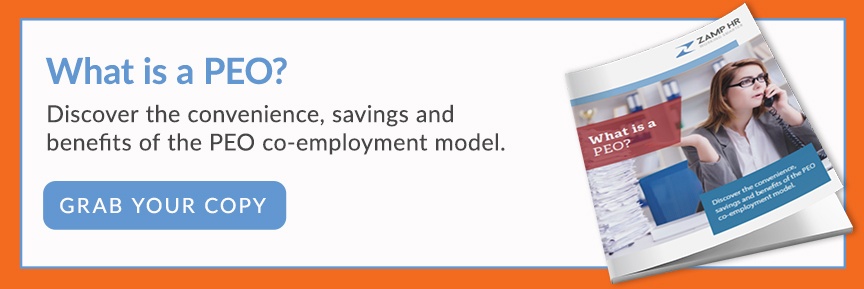Most small to medium-sized businesses are not using their HR team to their full advantage. Instead, HR staff are wasting their time on mundane administrative tasks that could be done by anyone.
Your in-house HR team should be focusing on what counts. That is to say, on the core duties of developing your company culture, recruiting the best talent, and treating your employees like the stars they are.
Why is HR's Time Valuable?
You have an HR team for a reason, and that reason is not to fill out paperwork. In fact, your HR team can provide a strong competitive advantage.
It's HR's core function to ensure that you not only recruit the best employees but also give them what they need to stick around. They need to design appropriate training programs, working with employees to ensure that their professional development needs and desires are met. By giving HR the tools they need and the time they need, you can become an employer of choice.
What Wastes HR's Time?
So, what gets in the way of HR using their time effectively? In short, paperwork. Mundane HR paperwork requires knowledge of the rules, how to use payroll software and compliance. It does not require the intimate knowledge of your business that your HR staff have spent time and energy developing.
Hiring another full-time person to handle these tasks is expensive, and the tasks can be outsourced at a fraction of the cost. Here are some of the most obvious time-wasters:
- Payroll processing - there's a reason payroll processing is the most commonly outsourced HR function; it's an obvious waste of time. Other companies may pass it off to the receptionist, but this increases the risk of mistakes. On the other hand, outsourcing payroll alone often has a negative ROI because it saves only time. However, it's a key part of a comprehensive outsourcing strategy.
- Benefits administration - handling open enrollment and benefits questions requires knowledge of your benefits, but otherwise is a mundane task. Outsourcing benefits administration allows those questions to be answered quickly, makes sure enrollment is done correctly, and removes not just time but a worry from your team.
- Unemployment claims management - unemployment claims require a lot of tedious paperwork to handle and access to employee files, but don't require the kind of knowledge your HR team has.
- Compliance - compliance failures cost small businesses thousands, and keeping up with the rules is a full-time job. Having your in-house team do this not only overburdens them, but also increases the risk of errors.
- Recruitment administration - creating job postings, putting them on the best sites, and handling initial screening of resumes can easily be outsourced. Your HR team will only get the candidates that are qualified and can then dedicate time to assessing them instead of checking whether they really have X degree from Y college.
- Safety training - safety training is of vital importance, especially in riskier industries such as construction. By outsourcing to a PEO, you can use their existing safety training as a basis and save a lot of time.
All of these tasks take up HR time that could be better spent elsewhere. At the same time, they are all absolutely vital to your company's functioning.
What Should HR's Focus Be?
Some business owners think that outsourcing all the routine paperwork means they don't really need an HR team. This is false. While the outsourcing company handles mundane manners, your HR team should be focused on two key areas:
Employee Relations
You want to have a good relationship with your employees. Good employee relations increase morale and productivity while reducing turnover. It also helps you get valuable referrals when seeking to fill a new position.
Establishing good employee relations means being open and positive. HR should handle things like making sure supervisors provide regular feedback. HR can also help you tell your employees what they are doing right.
Good professional development and incentives also help with employee relations. Your employees want to feel as if they can learn and grow with your company. If they feel as if they are stagnating, they are more likely to shop their resume. Finally, HR can mediate between employees who have developed a conflict to smooth things over and restore morale.
Company Culture
Good company culture helps with recruitment and retention. It also supports the vital, dynamic collaboration between employees that's important for all companies, but even more important for small to medium-sized businesses. A good company culture reduces stress and, thus, promotes wellness.
HR can help promote a strong company culture by offering good perks, supporting employee wellness, and ensuring that everyone buys into company goals.
HR outsourcing is the best way to avoid wasting HR's valuable time. It creates a competitive advantage not just through cost savings, but also by ensuring that your HR team can focus on creating a strong company culture and a good workplace environment.



